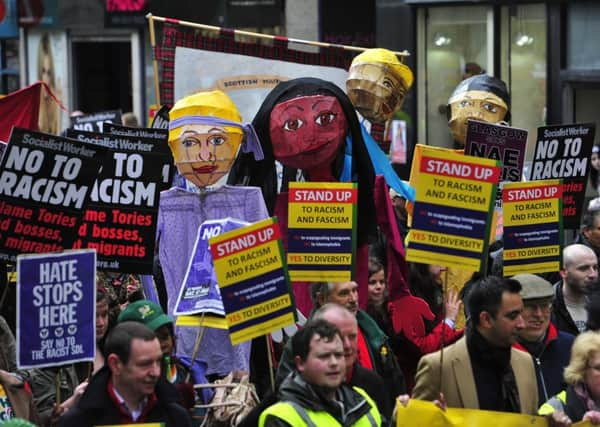Naina Bhardwaj: Want a good job? If you are white, you're all right


However, this is not always the case.
Many of those who are middle or upper class tend to lay the blame with the working class who they excuse as being uneducated. However, the majority of Scotland’s racism is institutional and takes place in the professional world.
A person with a BME (Black or Minority Ethnic) name has to send a job application 16 times to achieve a successful response compared to nine times for someone with a ‘white name’ – even though they were submitting the same application, according to Department for Work and Pensions (DWP) research which was carried out seven years ago.
Advertisement
Hide AdAdvertisement
Hide AdFigures from 2011/12 from the Coalition for Racial Equality and Rights (CRER) Scotland showed that, for local authority jobs, even after the interview stage, white candidates were almost twice as likely to be appointed as BME candidates.
The majority of people don’t realise they have the privilege not to think about race. Personally, it hangs over me like a grey cloud every day.
I question it through job applications and promotions, I question it when waiting staff are rude in restaurants, I question it when I receive phone calls to the organisation I run and they repeatedly ask for the “real boss”, refusing to accept that I was the one who built the organisation from scratch.
But that’s no excuse. Racism is a social construct, the contextual definition of which has only been created as a result. But it is clearly still prevalent throughout society, including Scotland, and it is time to do something about it.
Growing up I never saw a face like mine working in professions I aspired to one day. The representation of a strong, BME female to inspire me was missing from Scotland. The news presenters on the TV were white, middle-aged men, the teachers who taught me to read and write were white, middle-aged men, and the lawyers and accountants who looked after the family business were white, middle-aged men.
The lack of diversity was noted by many, both from BME backgrounds and those who were not, and a number of schemes have been put in place to address the lack of representation from BME communities in specific professions.
But there should be no need.
We should live in a Scotland that doesn’t rely on diversity schemes or quotas but one where the recruitment and selection process is accessible to everyone regardless of the colour of their skin.
Let’s try and regain what makes Scotland as pure, dead, brilliant as it is – the people who are warm, friendly and welcoming. A Scotland that is not racist.
Naina Bhardwaj is studying journalism. She lives in Glasgow